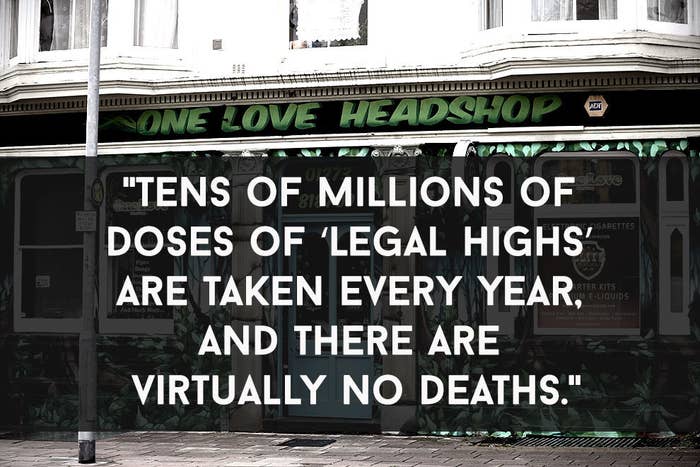
David Nutt, professor of neuropsychopharmacology at Imperial College London and chair of DrugScience
"Tens of millions of doses of 'legal highs' are taken every year, and there are virtually no deaths from those that are, in fact, legal; claims that more than 90 people die from 'legal highs' every year are false, as my independent committee, DrugScience, showed over a year ago. Almost all the deaths that have come from truly legal highs are those from drugs which have been specifically made to get around the law – e.g. 'Benzo Fury'.
"Banning the sale of the safer legal highs pushes users to underground sales, with less quality control and no information on the product, and to users being offered cocaine and heroin and so on as well. It'll lead to internet sales, with less or zero quality control. Overall it'll lead to a return to old illegal favourites – cocaine, heroin, etc – that are much more harmful."
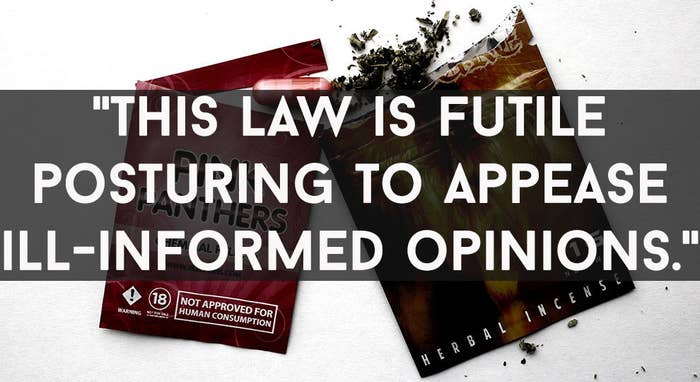
Tom Lloyd, former Cambridgeshire chief constable
"What's happening here is a continuation of prohibition, a policy which has patently been a hugely costly, harmful, and counterproductive failure over the last 40 or 50 years. Prohibition can have a temporary local impact on the drugs market, and an impact, to an extent, on what is consumed – it can lead to shifts in use from one drug to another. What we won't see is a fall in problematic drug use overall, as criminals adapt their mode of supply, for example from high-street headshops to internet dealers and street corners, as we've seen in Ireland.
"It would be even safer if all drugs were regulated by the government, as the reason that prohibition fails is that people want to get high. If you ban the substance you artificially raise its price, and criminals are highly motivated to take over the supply of that substance. The best option is to regulate all drugs so that you can control access, strength, and purity.
"You're going to get unintended consequences from this law, and it won't protect children, because it's easier for children to buy drugs from illegal dealers than from legal premises, as you can see with tobacco and alcohol.
"From a narrow law-enforcement point of view, this is yet another law for police to enforce; it will create a criminal market, and therefore more work for police. And there's no evidence that it will reduce harm. But this isn't about reducing harm through following evidence: It's about futile posturing to appease ill-informed opinions."
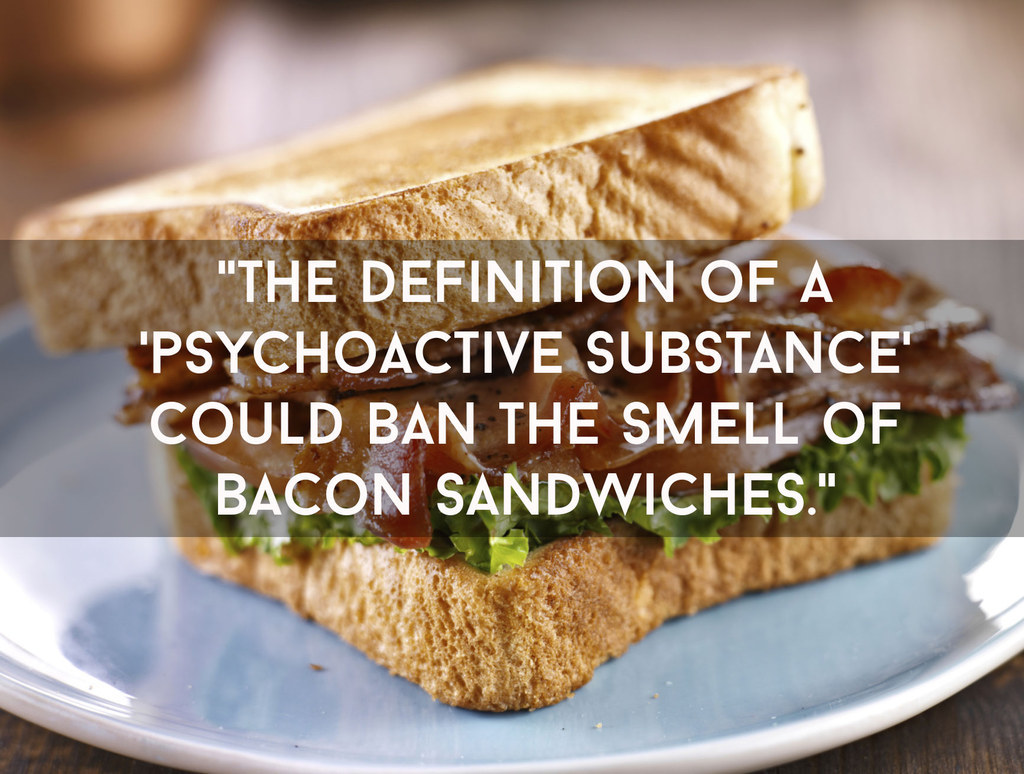
David Allen Green, solicitor at Preiskel & Co
"Prohibitions should be precise: You need to know whether you are inside or outside the scope of the prohibition so you can regulate your conduct. But the problem with this bill is that the prohibition is wide and vague.
"Once you start prohibiting on a vague basis, it leads to difficulties. The classic example is the Dangerous Dogs Act: It banned not only breeds, but ill-defined 'types'. The new legal-highs ban has the same problems. It's a blanket prohibition based on a vague definition with unclear exceptions – how, for instance, do you define 'food', which is one exception? The definition of 'psychoactive substances' as it stands, on the face of it, could ban the smell of bacon sandwiches. Is the smell of food the same as 'consuming' food? If so, what about the smell of flowers which are not food? Or perfumes? Or newsprint?
"There are two obvious problems which this will lead to. One, it'll be hard to prosecute and secure convictions, because the terms are so vague. Two, there is the inadvertent 'chilling' side effect, which is that importers and manufacturers will be less willing to risk importing or manufacturing objects which might come close to the definition.
"What the government should do so as to achieve their aim, I think, is to create a schedule of specific substances which can be easily added to. But this one-size-fits-all approach with exceptions won't work. I can see what they're trying to achieve, but this certainly won't achieve it."
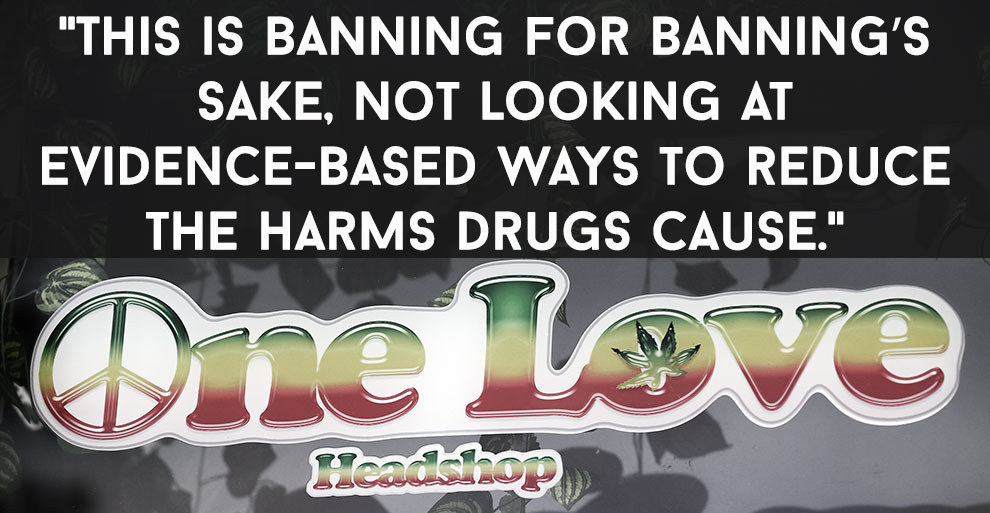
Sophie Macken, director of DrugScience
"We've got serious concerns about this bill. First there's the simple judicial workability of it: How will police forces, who are already struggling to cope with cutbacks, enforce it? We're also very worried about the effect it'll have on research into new drugs for psychological conditions. Research is already being stymied by current laws, and this will only make it worse, although that's not the government line.
"Britain isn't the first country to try this. I think Poland has done something similar, and they proudly told us that it shut down all the headshops – but we asked them if they'd monitored internet traffic of drugs, and they said yes. Sales had gone way up. It's a pyrrhic victory at best.
"It's also a disproportionate response. Novel psychoactive substances make up a small proportion of drug use. And criminalising something like nitrous oxide – yes, it's not without some potential harm, but it's relatively low-risk.
"It's just not a law that seems to be intended to reduce harm, or at least it hasn't looked seriously at the evidence of what does reduce harm. It risks pushing people away from a visible market which we can monitor into an invisible, underground one, and it risks pushing people away from drugs which we know into the unknown. This is a continuation of a policy of banning for banning's sake, not of looking at evidence-based ways to reduce the harms drugs cause."
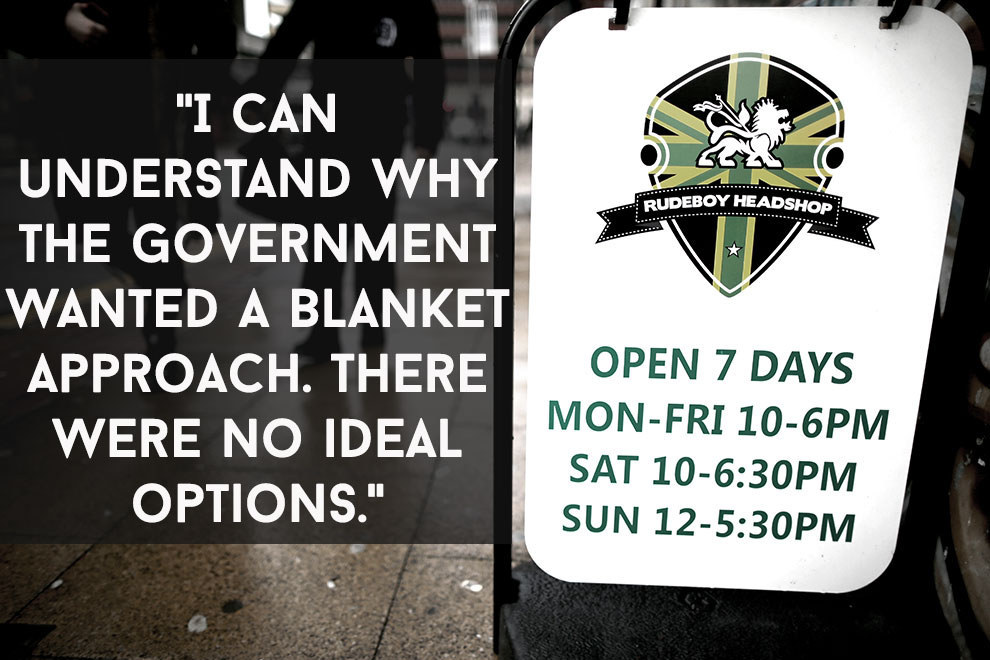
Harry Sumnall, professor in substance use at the Centre for Public Health, Liverpool John Moores University
"We tend to group legal highs together, including benign drugs like nitrous oxide – laughing gas – in the same category as much more dangerous things like 'N-bombs', a powerful hallucinogen. It's very unhelpful to think they're all the same type of drugs – it's like saying all 'sports' are the same, when in reality there are extreme, dangerous sports like mountaineering or drag racing, and then there's croquet or bowls.
"If the government's ambition is to shut down headshops, then this will probably work. But it ignores opportunities for licensing and harm reduction. It means drugs will only be available through criminal sources, and ignores differences between drugs. Also, it has the danger that it might push people from safer drugs on to more dangerous ones.
"It's difficult to know the effects of prohibition. We know that relaxing drug laws isn't associated with a rise in use, but we don't know really what happens when you make drug laws stricter. That said, mephedrone is a good example. For a while it was the second most popular drug in the UK, until it was banned in 2010, when its use plummeted. But new uses cropped up: People started injecting it, and it became associated with HIV. So if you're looking to reduce the use of drugs, then prohibition might help, but it won't help reduce the wider harms that drug use causes.
"I can understand why the government would take this approach. This bill is the latest stage in efforts to respond to novel psychoactive substances: the Misuse of Drugs Act, the temporary class drug orders. But these were both too slow, so I can understand why the government wanted a blanket approach. It's also not the only thing the government has planned on doing – there's information exchange and support for users as well. That said, I would rather the law had looked at opportunities for licensing novel psychoactives, for driving people who want to get intoxicated away from the more dangerous drugs and on to safer ones, but I'm not an elected politician."
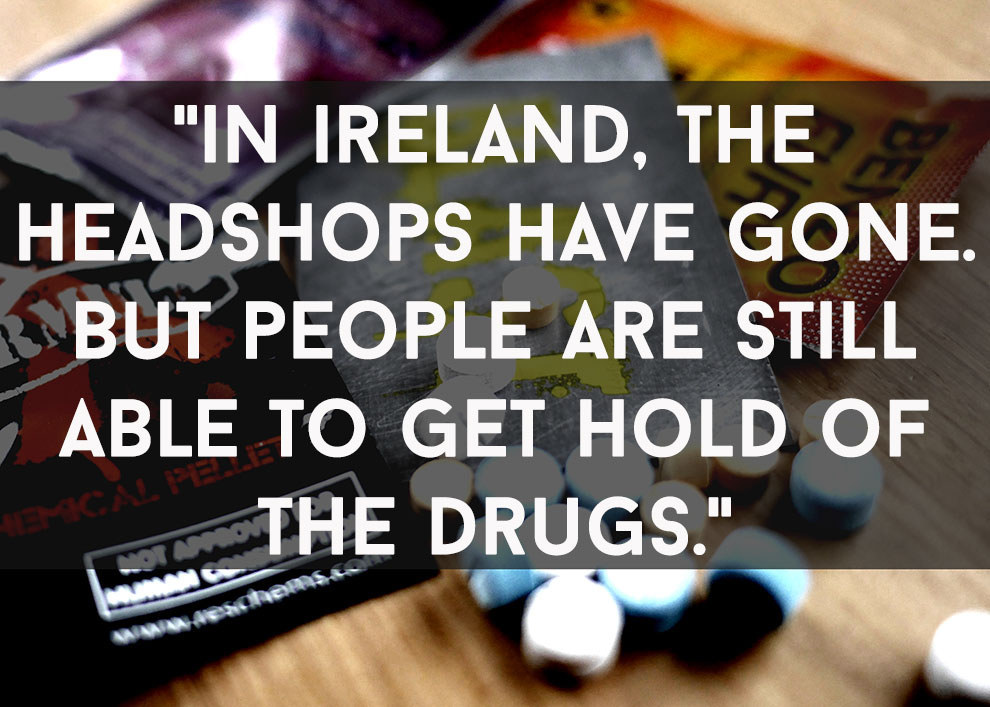
Tony Duffin, director of the Ana Liffey Drug Project
"In 2010, Ireland enacted the Criminal Justice (Psychoactive Substances) Act 2010, which I understand is similar to the proposed UK law. It was intended to shut down the headshops which had proliferated in Ireland, and from that point of view it succeeded: Where you used to find headshops, they're now gone. But people are still able to get hold of the drugs, via the internet or dealers, just not over the counter. For the people we work with, the headshop drugs didn't go away.
"Whether it worked or not depends on what outcome you wanted. For the wider population, prohibition might be effective, but it won't stop problem users or people who actively want the drugs. There are still huge harms associated with banned substances in Ireland – they haven't gone away. For instance, there's been a spike in HIV cases in Dublin among injecting-drug users, which is understood to be associated with mephedrone use.
"The reality is that people will use what's available; for some people, the legality or otherwise of a substance is not a concern, and making a substance illegal does not make it unavailable. What happened in Ireland was that in 2009 headshops decided to sell a wider range of psychoactives, and Ana Liffey's clients moved towards them, to try something different or to get more bang for their buck. But then these substances became less available, and clients moved back towards heroin, cocaine, and benzos. Cracking down does not solve the problem for our clients, it just displaces it.
"Everything should be on the table when it comes to drug policy. There needs to be recognition that a one-size-fits-all drug policy is a crude approach – there is a need to target harm and direct our scarce resources accordingly."
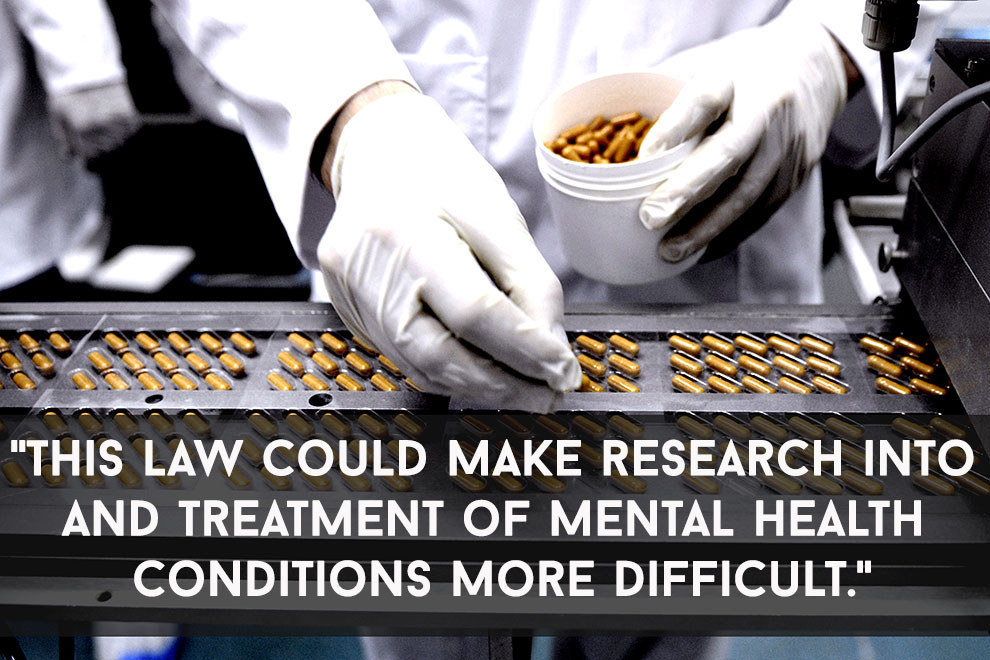
Suzi Gage, drugs and mental health researcher at Bristol University
"My personal opinion is that banning these substances is unlikely to be good for the mental health of the population. Adding the need to break the law in order to take a substance, and the potential risk of criminalisation, is likely to exacerbate mental health problems rather than protect people from them.
"Psychoactive substances have gradations of effect – just look at the varying effects of the explicitly exempted substances, like alcohol and caffeine, and it's not wise to lump them together. Not only are there gradations of effect, but effects won't necessarily be the same. Drugs that would be defined as psychoactive – whatever that definition might be! – are used to treat a number of mental health problems: For instance, ritalin for ADHD, and the promising pilot studies using MDMA for PTSD, and that sort of thing. There's a risk that this law could make research and treatment of mental health conditions more difficult."
